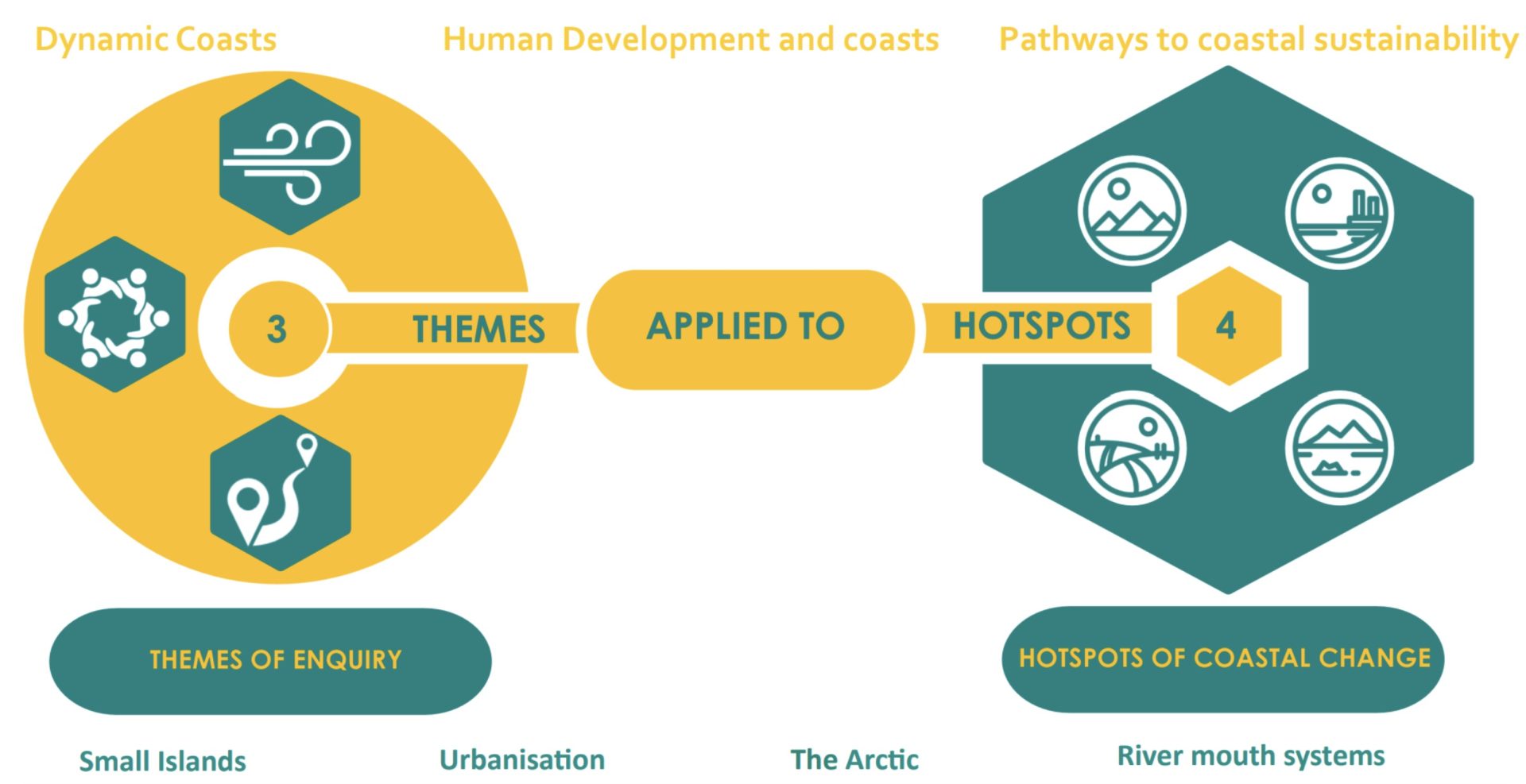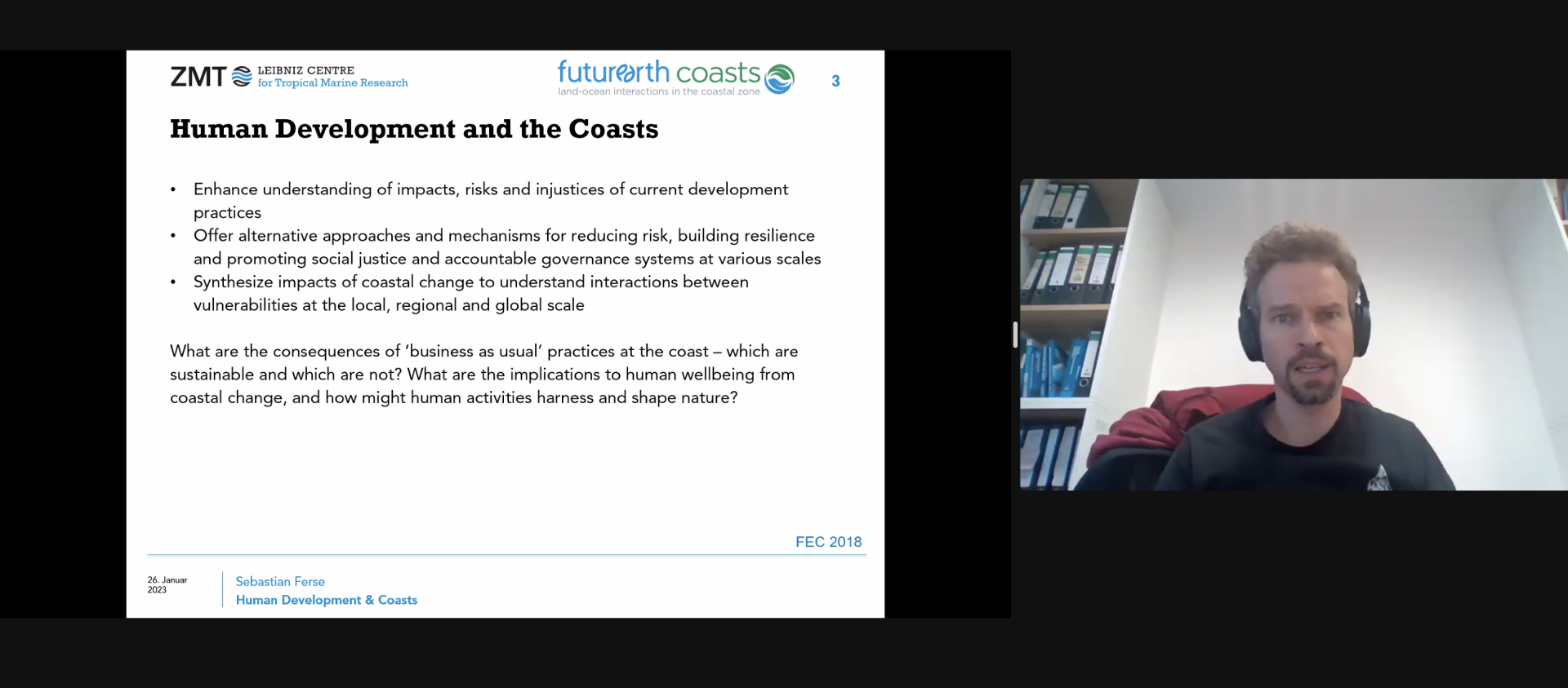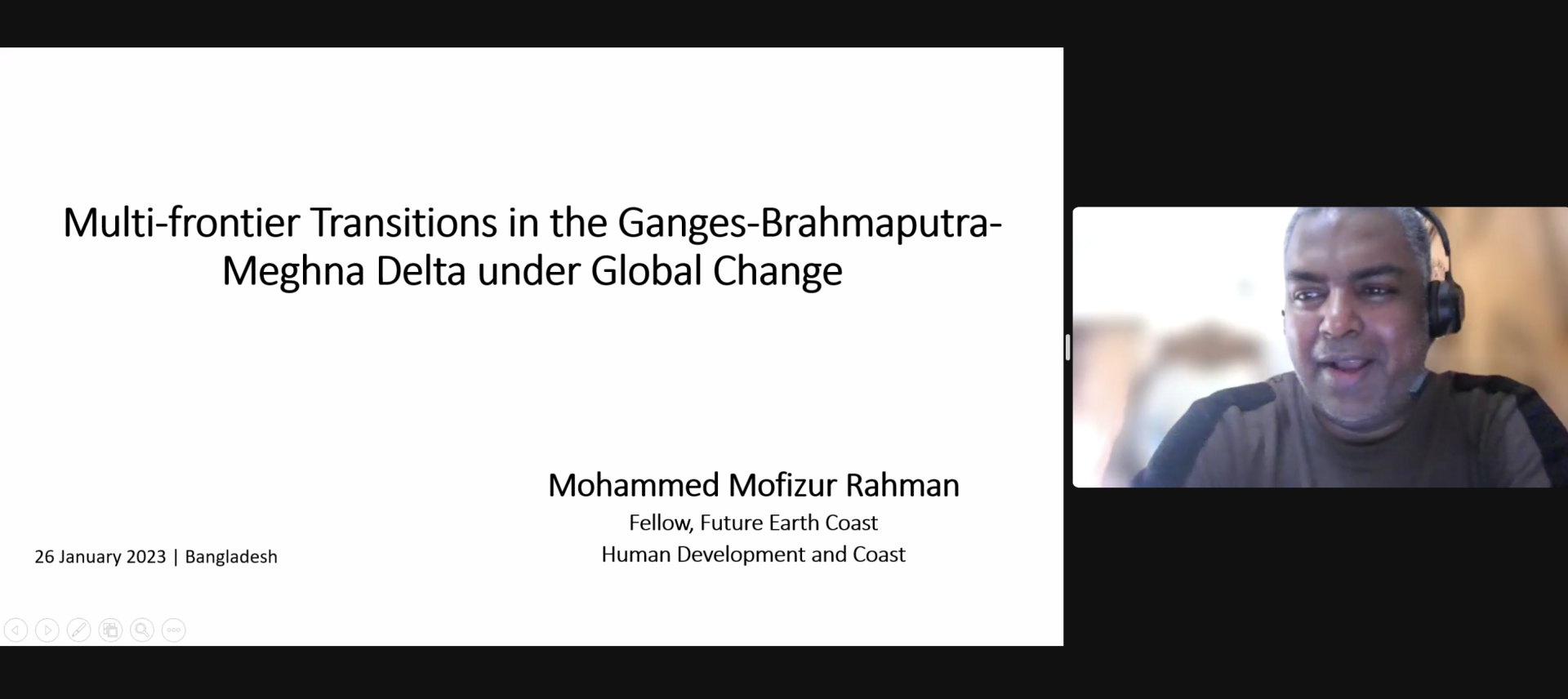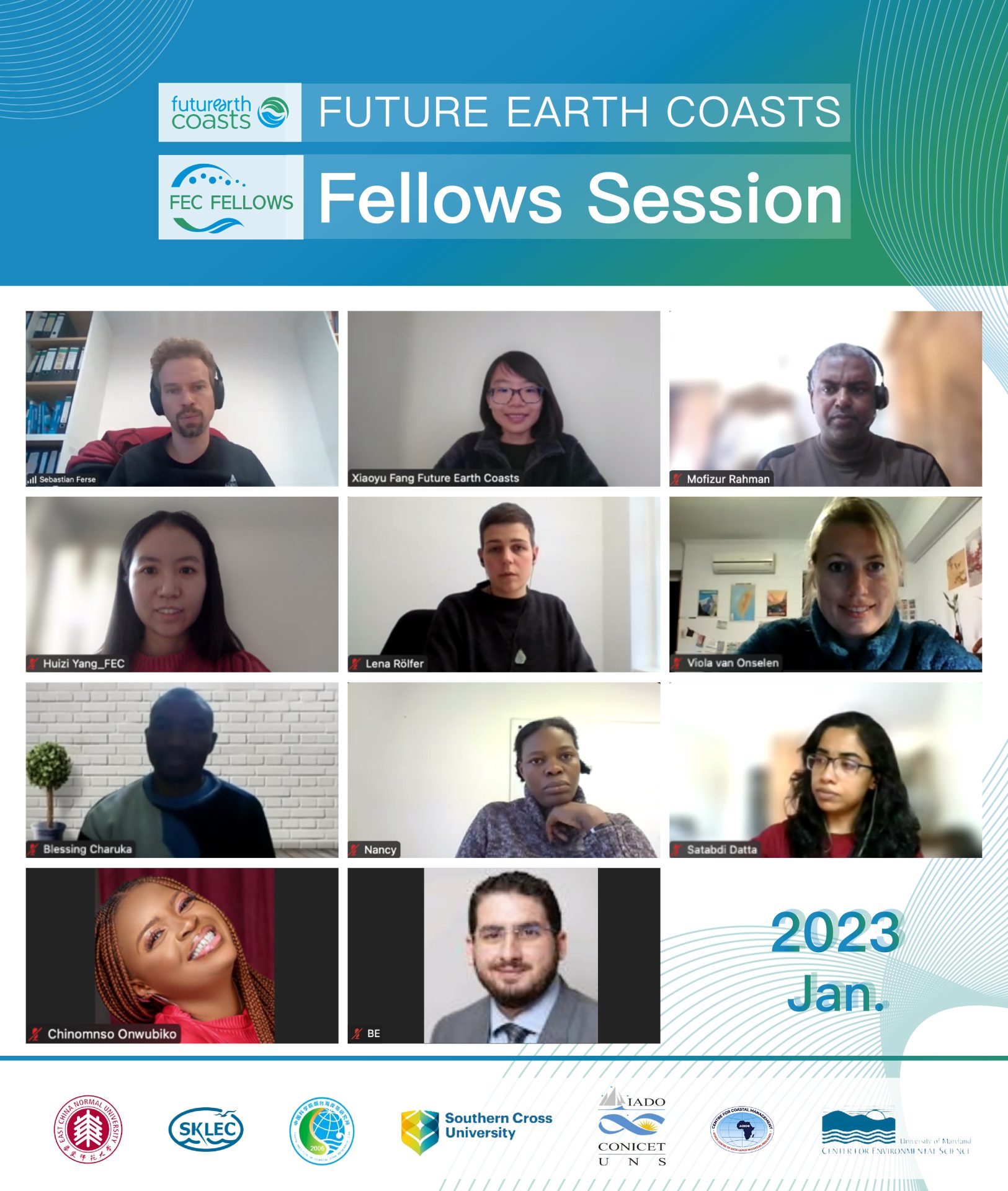What are the consequences of ‘business as usual’ practices at the coast?
Which are sustainable and which are not?
What are the implications to human wellbeing from coastal change, and how might human activities harness and shape nature?
‘FEC Fellows Session’ took place online on 26 January. The workshop was moderated by Dr. Xiaoyu Fang, the Executive director of FEC International Project Office (China). She introduced the topic ‘Human Development and Coasts’ which was identified as one of three FEC themes in the research strategy of FEC (2018-2028). The three FEC themes are Dynamic Coasts, Human Development and coasts, Pathways to coastal sustainability. They are strongly inter-related and complementary. Furthermore, FEC also identified critical features of coastal systems that are particularly vulnerable to coastal change and critical to the sustainability of coastal socio-ecological systems: Small Islands, Urbanisation, The Arctic, and River mouth system. FEC has been working with its networks and community partners by applying three themes to four hotspots.

Fig. Three themes and four hotspots
Climate change and intensive human activities are ongoing and increasing threat to the healthy development of the worldwide deltas and coastal area. The scope of this session is to shed lights on the understanding of the contradiction between the human activities and the sustainable development of these area. It aimed to provide a space for fruitful discussions on the monitoring, development and management of the deltas and coastal area.
Former director of FEC, also FEC academy member Dr. Sebastian Ferse from Leibniz Centre for Tropical Marine Research (ZMT) delivered the keynote presentation and shared his perspective on current challenges in coastal sustainability. In examining coastal livelihoods, institutions and mariculture techniques, he has been trying to gather insights into options for sustainable resources uses and into strategies for the development, implementation and improvement of these uses. He pointed out that it is necessary to enhance the understanding of impacts, risks and injustices for current development practices, and offer alternative approaches and mechanisms for reducing risk, building resilience as well as promoting social justice and accountable governance systems. It is important to synthesize impacts of coastal change to understand interactions between vulnerabilities at the local, regional and global scales. He mentioned that the ‘business as usual’ approach to coastal areas cannot match the requirement of sustainable development and suggested that a sustainable future needs to be co-designed through four steps:
Step1: bring reginal coastal stakeholders together to agree on a way forward;
Step2: build shared understanding about the coast and identity plausible;
Step3: co-design robust coastal sustainability strategies;
Step4: co-produce innovative coastal sustainability interventions and enable transition pathways.

Fig. Dr Sebastian Ferse
FEC fellow Mr. Mohammed Mofizur Rahman from Potsdam Institute for Climate Impact Research (PIK, Germany) delivered his presentation focused on the multi-frontier transitions in the Ganges-Brahmaputra-Meghna Delta under global change. He is a trans-disciplinary Environmental Scientist from Bangladesh, working on human dimension of environmental change especially in the low lying coastal river deltas. He is familiar with climate change and natural resources related issues in coastal areas in Bangladesh and beyond. He combines an ethnographic approach with computational models to understand the present and predict the future of the Bengal Delta. In the presentation, he summarized four transitions including demographic, biophysical, social ecological and governance transitions. He also highlighted the change of mindset from short-term to long-term planning in coastal sustainability in Bangladesh and introduced ‘Bangladesh Delta Plan 2100 – the best gift for the future generations by the present generation’.

Fig. Mr Mohammed Mofizur Rahman
A discussion followed and all participants shared their insights on why and how to achieve the sustainable future, and how to improve governance efficiency.
This workshop provided opportunities for fellows from different coastal communities to share their opinions on potential solutions for the sustainable development in coastal regions. It was agreed that it needs to be tailored to local conditions and take the demands of different people into consideration. Last but not least, clarification of authority and responsibility is also important.
Video Recording please find here:

